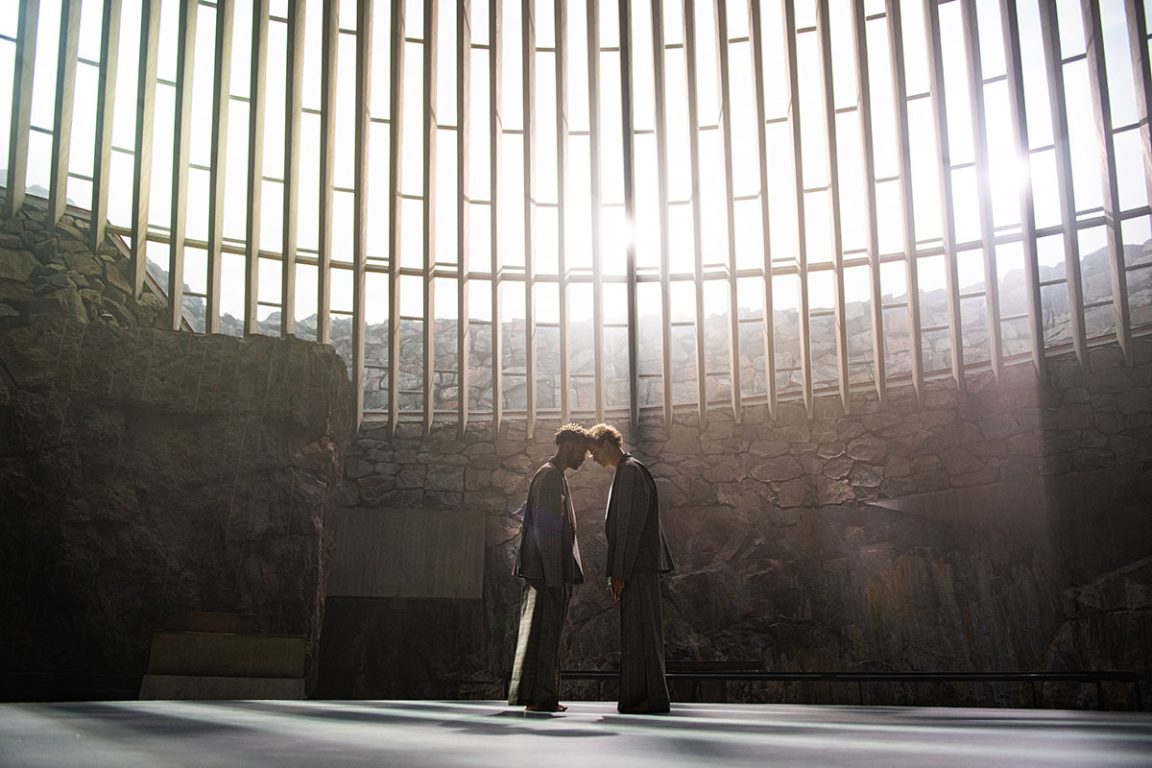The first statistics on the environmental impact of Finnish audiovisual productions in 2022

Press release from Audiovisual Producers Finland – APFI ry
Image: Dance Brothers / Endemol Shine
Audiovisual Producers Finland – APFI ry, Finland’s trade association for producers of audiovisual content, has led a project since 2021, the purpose of which is to develop the ecology of the film and TV industry. As one result of the project production companies have gained access to tools that e.g., enable them to calculate the production’s carbon footprint. The statistics have now been compiled from 2022. For the first time Finland has information on the environmental impact when creating one hour of finalized material.
The environmental impacts of the domestic audiovisual industry have never been measured and compiled but now the situation is changing. Finnish production companies have been offered the albert toolkit under the guidance of APFI. Productions can use the UK-based carbon calculator and aim for a certification, where productions not only calculate their emissions, but also affect their reduction. The toolkit was only available for pre-selected productions in the pilot phase, but in June 2022 the tools were freely opened for use by all Finnish production companies.
In the first year 23 productions participated: Finnish productions can be said to have been sustainable energy consumers. The largest emissions came from travel and transport
In 2022, a total of 23 productions calculated their carbon footprints. Productions covered both fictional and non-fictional TV shows. The first year’s figures do not include any feature films. In 2022, Yle alone commissioned more than 150 productions, in light of which the sample is small and it is not possible to draw comprehensive conclusions about the entire industry, but a good start on compiling statistics on the ecology of productions has finally been achieved.
The vast majority of emissions, i.e. 75%, came from travel and transport. Only six productions had air travel and they made up approximately half of the total emissions of the 23 productions. Carbon footprints cover all aspects of the production from procurements to accommodation and from office spaces to post-production. Finnish productions can be said to have been smart energy consumers as about half of the energy needed by the productions was renewable. Almost 10,000 hot meals were eaten in the productions, more than half of which were vegetarian.
Case study: Dance Brothers, that reduced its carbon footprint by 80% and received an albert certificate.
Dance Brothers, produced by Endemol Shine Finland, is a co-production of Netflix and Yle and the first Finnish series to have its world premiere on Netflix. Producer Max Malka and production manager Nina Erwes consider ecology to be one of the basic pillars of production, and the series is the first Finnish TV production that has not only calculated its emissions, reduced their carbon footprint by approx. 80% and received the albert certification.
“There has been a lot to learn in being sustainable, when routines and all the data hasn’t existed yet. Facts about consumption become apparent when we start to be measure and collect them, which in turn enables better reaction and planning in the future,” Malka and Erwes sum up their experience.
At APFI, sustainability manager Anne Puolanne oversees issues related to sustainability, and she has been the helping hand for productions that have wanted to use the toolkit. “The tools should be seen as a means to learn and understand the concept of ecology in production. The productions make their own decisions, but we can guide them in what is important to focus on. The tools and figures are a good support.” Puolanne thanks the productions for their activity: “The compilation of the first national statistics is a great step for Finland. Only now will we be able to build an overall picture of the industry’s operations, after which it will be possible to decide in which areas of the industry it is most critical to improve.”
Finland’s national sustainability strategy initiative is partly funded by a consortium of key partners of the industry, which currently include:
Ministry of Education and Culture
Finnish Broadcasting Company YLE
Promotion Centre for Audiovisual Culture AVEK
Finnish Film Foundation
The Finnish Television Academy (incl. all commercial broadcasters)
Business Finland
City of Helsinki
City of Forssa
Finnish Lapland Film Commission
North Finland Film Commission
West Finland Film Commission
East Finland Film Commission
Southeast Finland Film Commission
Film Tampere
Åland Film Commission
Trade Union for Theatre and Media Finland
AVATE (union of Finnish Actors’ Union, Association of Finnish Film Directors SELO, and Writers Guild of Finland)
